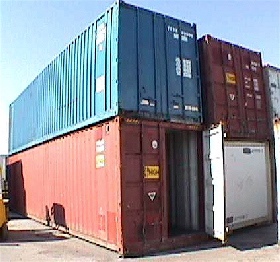Ports' Technology Failure
RFID tags could greatly increase port security by
tracking international cargo -- but no one wants to pay for it.

The national debate over port ownership and cargo security often features this sobering statistic: only 5 percent of cargo containers arriving in the United States are inspected. But perhaps an even more disturbing statistic is that fewer than 1 percent of cargo containers — Pentagon cargo excepted — are tracked with simple radio-frequency identification (RFID) tags — a technology that could help pinpoint where a container has been and whether someone has broken into its seal in transit.
Each RFID tag can store a unique ID number that is “read” by fixed or handheld electronic readers. Such tags can also store bits of information from attached sensors. They present an obvious and relatively cheap way to help address the cargo security question.
The problem isn’t a technological one, [Daniel] Engels points out. Rather, the industry has been slow to recognize a business model, governments aren’t forcing the industry’s hand, and the global cargo industry has not been motivated to forge standards.
The article points out the 1st bar code appeared in 1974. I worked for a firm that ran a D.O.D. study in the early 80’s that proved 99.97% accuracy. Actually, we ran 10,000 parcels through the system and got correct results for 9,997 — because the soldiers lost 3 parcels. By the late 80’s, inventory control and traffic management requirements pushed virtually complete participation — well beyond the previously accepted UPC retail codes.
Getting RFID to work for both harbor security and logistics is probably overdue.
Posted: Wed - March 1, 2006 at 06:18 AM